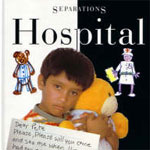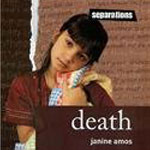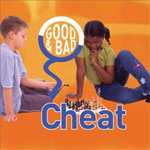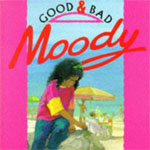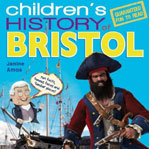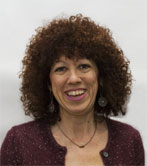
I love books and my home is full of them – even the bathroom. I have a hundred and five books in a huge pile next to my bed.
At night, when the ordinary world stops,
I can hear the floorboards creaking and groaning with the weight. My ebook
library is growing nicely too.
I love books for young people most of all. Ever since I left university I’ve been working in the world of children’s books, first as an editor, now as a writer.
I set my books in places which are special to me, such as Wales and Cornwall. I also write about the city streets and back yards near you.
Lots of my stories are about things that could really happen. The most fantastic adventures take place right here, every day of the week – you just need to keep an eye out for them!
Q&A with Janine Amos
Q. How many books have you written for children?
More than a hundred. I write lots of different kinds of books, for different age-groups.
Some of them help children to deal with real life:
Some deal with behaviour and emotions:
I also like writing history and finding out about the natural world. Bats, cats, gnats, slugs and bugs are just some of the creatures I’ve taken a look at, with children aged 5 + in mind. Birds and fish are amazing too.
We live in an amazing world and it’s up to us to do all we can to take care of it.
I sometimes write for pre-school children and for teenagers.
I write both fact and fiction – and sometimes a bit of both (faction).
Q. Have you always been involved with children’s books?
Yes. I worked as an Editor and Commissioning Editor in children’s publishing, seeing books through from pitch to publication. Then I left to write at home and bring up my lovely son. I tried out all my writing on him when he was younger – and I still do. He’s a great reader and an excellent consultant.
Q. Which kinds of books do enjoy writing most?
Fiction wins every time!
Q. What’s your next book about?
It’s an adventure story, set in Wales.
Q. Where do you get your ideas from?
From watching people, listening to their stories and what they say (or don’t say!), visiting places, memories, TV, folk tales – and my dreams.
And I store all these snippets and ideas in notebooks and boxes, ready to weave into stories when the time is right.
Q. What’s the hardest thing about being a writer?
I think the hardest thing is also one of the most important things – and that is writing every day. I try to. I write when I’m in a café waiting for someone to arrive. I work out my next plot point while I’m making my sandwiches. I sometimes wake up in the middle of the night and scribble in a notebook by the side of my bed.
I’m happiest sitting on a mountain or by the sea with a notebook or my phone, jotting down ideas, words and sentences – and taking characters for a walk.
Q. How important is your Welsh childhood in your writing?
Very important: Dad singing in the bathroom, his Welsh humour and warmth, Mum reading to me and telling me old stories and my grandmother giving a running commentary on the terrible colour combinations of other people’s clothes in chapel!
Q What advice do you have for new writers?
Give yourself the space and time to think. You need to do this to get to know your characters properly and to work out where your story is going. I remember Jacqueline Wilson talking about the importance of creative thinking time in the bath. I agree. The bath is a wonderful place for relaxing and letting all those half-thoughts and ideas come to the front of your mind.
Reading is really important. Reading how other people tell stories helps you to develop a writing ‘voice’ of your own.
